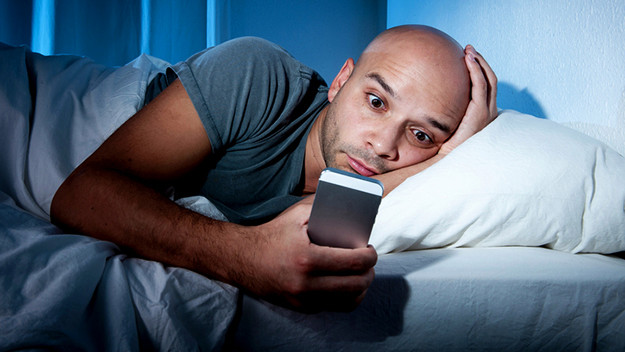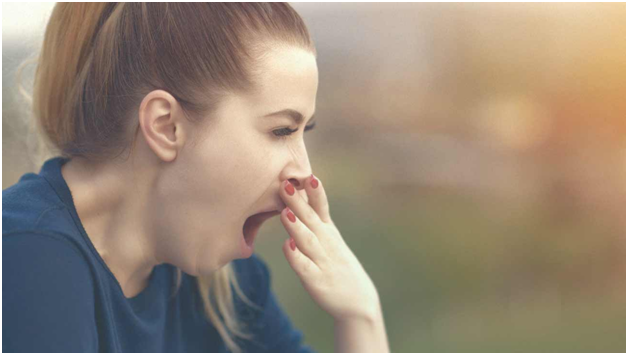
How Your Sleeping Habits Are Affecting Your Health
If you are among the many today that experience headaches and migraines, it could be due to your sleep habits – even without you realizing it. The link between your sleep habits and your chances of getting headaches is very close.
Not only does lack of proper sleep result in sleep headaches regardless of whether you use nectar mattress reviews to get new comfortable beddings or not, but also insomnia tends to lead to general headaches in many people. This makes it important to prioritize your sleep habits, as this will reduce your symptoms and likelihood of suffering these symptoms.
Why will you wake up with headaches sometimes?
There is something that is termed as the ‘sleep clock’, and your body has this to regulate the times it sleeps and wakes up. When you follow a specific sleep schedule, the body will gradually adjust to these times until you do not need alarm clocks anymore to wake you up early.
The problem with sleeping too little or too much is that the body is not used to this amount of sleep, so headaches will result from that. They can be due to several causes, such as grinding of the teeth while you sleep, having sleep apnea, depression, and even dust mites in bedding which lead to allergic reactions.
It is common to wake up with headaches since the body has the lowest level of natural painkillers at this point. The good news however about morning headaches is that they tend to go away on their own. Although you can also take some pain-relieving medication that contain low doses of caffeine.
What is the root cause of migraine?

Migraineusually begins when nerve cells in the brain begin to get hyperactive, and they send messages (or impulses) to blood vessels. These messages will signal the blood vessels to constrict and expand at very quick rates. The brain then begins to release inflammatory substances and certain chemicals, which make these pulsations very painful.
In a study that was published recently, some scientists did a sleep interview with some women who experienced transformed migraines (these are episodic or occasional migraines that occur during a period of at least half a month). When these women were asked whether they were tired upon waking up, they all answered that they were, with more than 80 percent feeling very exhausted when they woke up. They all had a common issue though – sleep problems.
A second study on migraines also established that when a person has good sleep habits, they are less likely to suffer migraine headaches. For instance, when some women with transformational migraines received medical care and behavioral sleep instructions, they recorded their experience in diaries. The results revealed that when they got behavioral sleep instructions and were able to sleep better.They had a significant reduction in the instances of migraines and their intensity.
What is the link between lack of sleep and migraines?

When you are in the REMstage of sleep (Rapid Eye Movement) and suddenly wake up, this can trigger a powerful migraine that happens five to six hours afterwards. The body goes through six sleeping cycles that are divided among four stages of sleep. This includes REM sleep. The deeper stages – three and four – are important because they allow the brain to produce dopamine and serotonin, two important neurotransmitters.
These two are responsible for the ‘feel good’ factor you have when you are awake, but their levels are dependent on the amount of sleep you get. The reduction of sleep will lead to a decrease in these neurotransmitters, which is why sleepy people are also irritable and grumpy.
One major reason for waking up with migraines is due to REM sleep becoming more powerful before you wake up. The more problems you have with your sleep, the more migraines are triggered because of unstable serotonin levels and reduced dopamine.
For people suffering with depression, these neurotransmitters are also interfered with. Anti-depressant drugs, especially SSRIs (Serotonin reuptake inhibitors) will assist the brain to stabilize serotonin level, therefore reducing migraines. These medications can also be useful in treating migraines.
Are migraines triggered by your sleep habits?

It is important to know your sleeping habits. For instance, do you tend to toss and turn for some hours when you are supposed to be asleep? Do you experience challenges in falling asleep? Do you feel irritable, fatigued, or even in a state of depression when you have had a rough night? Regardless of whether you have headaches or you do not, impairment of functionality and optimal concentration during the day is still a major problem for many people today.
When you are attempting to get the root cause of sleep issues, you need to look at certain signs. If you go through two or more issues, then it points to a bigger problem. they include having headaches when you wake up, suffering pains and aches in other parts of the body, feeling low moods that do not improve, feeling fatigue that does not go away after taking coffee, and feeling irritable, moody and impatient. Other factors includetrouble learning new information, and the inability to maintain harmony with friends and family.
How can you improve your sleep habits and reduce headaches?

While you cannot always guarantee that sleeping habits are going to reduce migraines, there are some methods you can use to improve your sleep habits.
You need to track your sleeping habits every morning for four weeks, and you can write down how you are affected every day. You might begin to notice a pattern, which will encourage you to make some adjustments to your sleep times and habits – so you can start to be more productive at home and at work.
Final thoughts
There are many reasons for experiencing headaches when you wake up, but there are measures you can take to reduce the chances of this happening. In addition, you need to also reduce noise levels, intake of drugs, and improve your stress management levels. The best thing to do is to ask your doctor for advice on what to do to help in managing your migraines.

